Contents
- Downloadable copy
- Foreword
- Introduction
- Trust values
- Hello, our name is RDaSH
- Nurturing the power in our communities (our RDaSHway)
- How we worked with others to develop our plan
- Our people and our values
- Our population, assets and inequity
- Community power and the history of our trust
- What we will stop doing to deliver the strategy
- How we will deliver the strategy
- Our objectives for the next five years
- Strategic objective 1, Nurture partnerships with patients and citizens to support good health
- Strategic objective 2, Create equity of access, employment and experience to address differences in outcome
- Strategic objective 3, Extend our community offer, in each of and between physical, mental health, learning disability, autism and addiction services
- Strategic objective 4, Deliver high quality and therapeutic bed-based care on our own sites and in other settings
- Strategic objective 5, Help to deliver social value with local communities through outstanding partnerships with neighbouring local organisations
- Measuring success
- Contact the trust
Downloadable copy
For information about our clinical and organisational strategy from 2023 to 2028 please see:
- Clinical and organisational strategy 2023 to 2028 in English (PDF, 5.38MB)
- Clinical and organisational strategy 2023 to 2028 in Lithuanian (PDF, 2MB)
- Clinical and organisational strategy 2023 to 2028 in Indian Punjabi (PDF, 2MB)
- Clinical and organisational strategy 2023 to 2028 in Pakistan Punjabi (PDF document, 2MB)
- Clinical and organisational strategy 2023 to 2028 in Polish (PDF, 2MB)
- Clinical and organisational strategy 2023 to 2028 in Romanian (PDF, 2MB)
- Clinical and organisational strategy 2023 to 2028 in Slovak (PDF, 2MB)
- Clinical and organisational strategy 2023 to 2028 in Urdu (PDF, 2MB)
Foreword
This strategy sets out some promises about what we will try and achieve over the next five years. Events and new ideas will be added during that time. But in approving the strategy, we promise to strive to do what this document says that we will do. When we succeed, we will celebrate, and when we fall short, we will learn and try again.
Nothing in this strategy can be done alone. The heart of the idea behind our promises is one of partnership. Partnership with schools, with business, with universities, with colleges, with other NHS organisations, and our local government colleagues. Yet the biggest partnership on which we will rely, and the focus of the first objective in our strategy, is with people living locally, some who see themselves as patients, others who identify as having lived experience, many who volunteer their time as carers or work with local services like ours.
The trust wants to extend and expand our research and education work. We want to improve the quality of our care, shortening waiting times, focusing on the experience of our services, and delivering better outcomes. We also make promises about our employment approach and our purchasing of goods and services: in both we want to do more to sustain the local economy, in part because we need to adapt to the climate emergency.
The strategy, we think, is exciting. It is intentionally focused on the power in our communities. The role of the trust is to work with that power and to nurture those communities. That is our future as a partner to all.

Introduction
RDaSH is ambitious about driving change and improvement for our patients, staff and local communities.
This 2023 to 2028 trust strategy sets out our ambitions over the next five years. By delivering these ambitions we seek to improve health and care for local people and support our people and teams to thrive at work.
The strategy and how we work to deliver it, will be framed around our five objectives. Those are to:
- nurture partnerships with patients and citizens to support good health
- create equity of access, employment, and experience to address differences in outcome
- extend our community offer, in each of and between, physical, mental health, learning disability, autism and addiction services
- deliver high quality and therapeutic bed-based care on our own sites and in other settings
- help to deliver social value with local communities through outstanding partnerships with neighbouring local organisations
Trust values
- Passionate.
- Reliable.
- Caring and safe.
- Supportive.
- Open.
- Progressive.
The values of the trust remain a constant. They guide our behaviours and approaches and explain how we will go about delivering this strategy. We will be open in reporting our progress at all times, supporting one another to achieve what are stretching goals.
Our promises
Beyond the five objectives, the strategy is based on 28 promises that we will deliver. A handful of these are existing national, regional, or local collaborative priorities.
As part of objective five we will maintain our commitment to the plans agreed through two local integrated care boards, and we remain focused on place partnerships with local authorities and others.
But most of the promises are local. They come from discussions, debates, and reflections, drawn from local people, as patients, as carers, or within our community. They come from suggestions from employees and volunteers. The promises are aspirational. Some are difficult to achieve. They represent our priorities for investment, of effort and money.
This strategy has been co-produced over the last year, starting with launch events in June 2022. It has benefitted from significant engagement with many people since that time. We believe it represents a shared endeavour.
We want RDaSH to be community powered, clinically led, and system enabled.
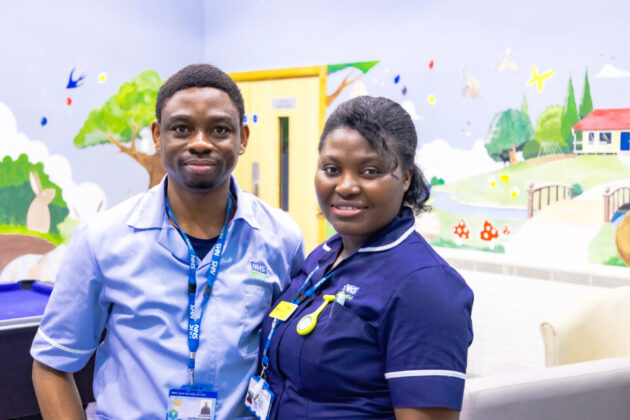
Hello, our name is RDaSH
- We serve a population of over 735,000 people.
- We provide services for patients of all ages.
- We work with local higher education institutes in Sheffield, Hull and also with national education providers.
- We work with over 200 voluntary, community and social enterprise sector organisations.
- We work with 84 GP practices.
- We work with 15 primary care networks
- We are an active partner in acute care, mental health, learning disabilities and autism provider collaboratives.
- We work in three place systems, Rotherham, North Lincolnshire, and Doncaster.
- In these locations, we offer the following services:
- Rotherham: Learning disabilities, all age mental health, children’s services, neuro rehabilitation
- North Lincolnshire: Learning disabilities, all age mental health, children’s services
- Doncaster: Learning disabilities, all age mental health, children’s services, physical health services, forensic services, drug and alcohol services, and neuro rehabilitation
- We support 155,000 patients every year.
- People focussed group is our participation partner.
- Flourish is our community interest company.
- We work with two integrated care boards.
- We work closely with three local authority partners.
- We work with one Ambulance NHS Trust.
- We work with three acute NHS hospitals.
Nurturing the power in our communities (our RDaSHway)
RDaSH sits at the heart of many neighbourhoods across North Lincolnshire and South Yorkshire.
We employ over 4,000 local residents, educate hundreds of students, and have an extensive research portfolio. Our service offer varies in form and type across those communities. We work with citizens of all ages to offer child health and mental health services to young people, as well as care to older adults, people with learning disabilities and those who have acute care needs.
The trust sees our future as a networked organisation that is recognised for the way in which we nurture the power in communities to create and support their own health.
We will listen, invest, deliver and learn with the communities in which we work.
Increasingly, we will employ people who have used our services and work with our volunteers to build connection with the most excluded and marginalized people living locally. We believe there is no health without good mental health.
Our focus will be on the outcomes of the services we provide.
Those outcomes are set with each individual patient, what matters to you.
We will be active in comparing our outcomes to others, and in improving the quality of our care year by year.
Success will come in partnership with local business, universities, community organisations, schools, NHS, and local authority partners.
Success requires us to be an employer valued and trusted by our people for the compassionate way in which teams are led and individuals developed. Our passion for population health and tackling inequalities will be evident in all that we do.
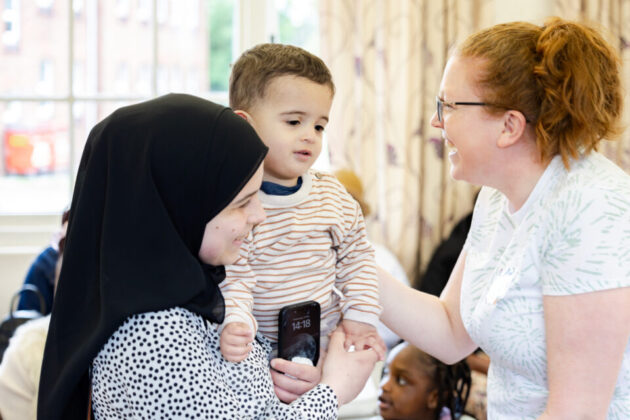
How we worked with others to develop our plan
Listening has been key to developing this strategy.
From engagement events where people from our communities could come together and discuss what mattered to them through to patients, carers, people who deliver our services and partners we work with.
It has also been important to consider the strategic priorities of our partner organisations, the ‘place’ plans developed in Rotherham, Doncaster and North Lincolnshire and also the integrated care system strategies published in South Yorkshire and in Humber and North Yorkshire in 2023.
We have used surveys that were sent to all people working in the Trust who were unable to attend the engagement events and we spent time with community groups across Rotherham, Doncaster and North Lincolnshire to find out what really matters to them and what they want from RDaSH in the next five years.
In addition, all clinical service and trust wide service leads worked with their teams to input into the development of this strategy.
Finally, we have considered the national guidance related to all of our clinical services to develop our strategy and set our ambitions concerning how we will improve and innovate.
Our approach is aligned with the Health and Social Care Act which places a legal duty to have regard towards the wider effect of our decisions. This is to make sure we better meet a ‘triple aim’ of the:
- health and wellbeing of our population
- quality of services provided
- efficiency and sustainability in the use of resources.
At the end of this strategy, we explain how this work to listen and learn will continue. It will continue in how we deliver the strategy, but also in who judges whether we have met our promises.
If you are reading this strategy and have not been asked or involved before, thank you for taking the time now. We want to work with you over the five years that are described in this ambitious document.
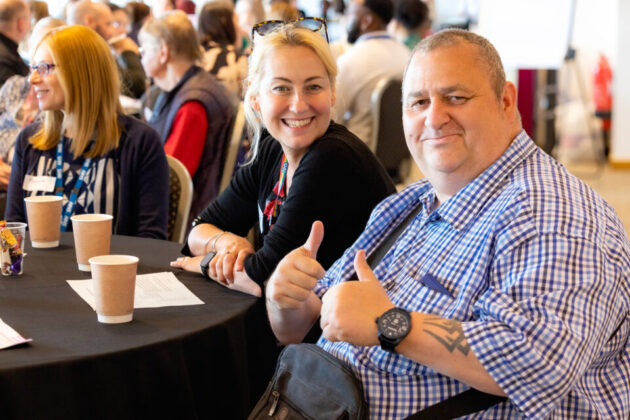
Our people and our values
Our colleagues, our carers and our volunteers are the greatest asset we have. They are “our” people.
We want our people to feel.
Engaged, empowered, skilled and responsive and to work in an environment of civility, respect, equality, diversity, and inclusion.
Every day we strive to create a workplace climate and an organisational culture which are responsive, supportive, and restorative, where good practice is shared and we promote a learning environment for all.
Over the five years of this strategy, that focus on learning will deepen. We will ring-fence our training budgets and invest in knowledge.
We will create time to learn, not just in our trust, but in our communities.
Our values and behaviours
Our values set out what we stand for at RDaSH. They play a critical role in creating and maintaining our culture and ensuring a progressive, sustainable and a healthy working environment for our people. Our values, competencies and behaviours are at the heart of this. “How” our colleagues do things is as important as “what” we do.
This is nothing new. These values were established a decade ago and they remain a constant in our work. Our system of recruiting, training, and supporting teams across the trust reflects these values, and the behaviours that give rise to them.
Caring people care, and our culture should represent what we want and how we will achieve it, by having a just, compassionate, inclusive, learning and accountable culture that values people at its heart, where people treat each other with kindness and fairly.
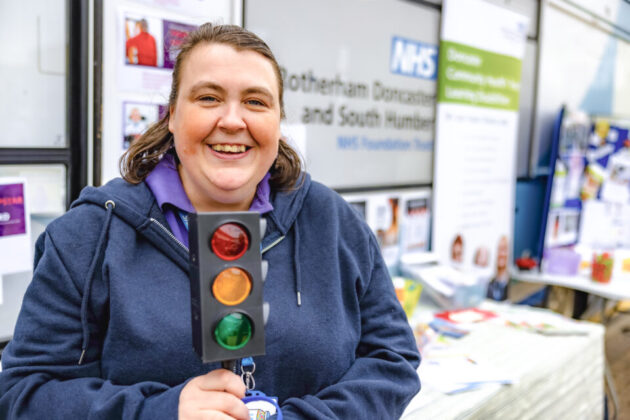
Our population, assets and inequity
Our area of 650 square miles across Doncaster, Rotherham and North Lincolnshire is a rich mix of urban neighbourhoods and many rural and village communities.
We provide services to a population of around 735,000 people but it is a population where the recent COVID-19 Pandemic has brought a real focus on health inequalities within it. The pandemic disproportionately affected older adults and citizens from a Black or Asian background and it also significantly affected the mental health of many people, especially local children and young people and those who had an existing mental illness. We know that the root of many inequalities remains poverty and deprivation.
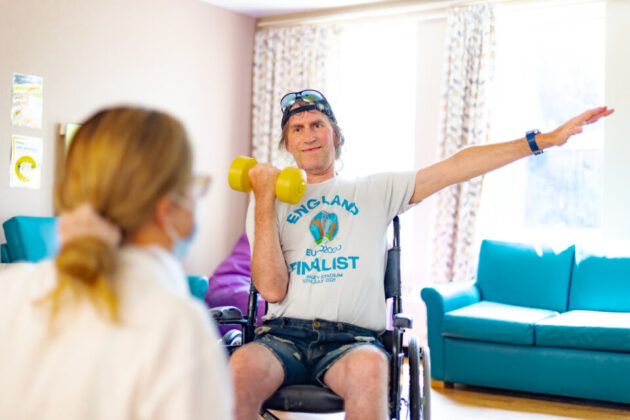 The wealth gap leads to more years of unhealthy life expectancy and it correlates to having multiple long term conditions.
The wealth gap leads to more years of unhealthy life expectancy and it correlates to having multiple long term conditions.
Locally, we know that a third of Rotherham residents live in the most deprived neighbourhoods as do 41% of those in Doncaster, and a fifth of people in North Lincolnshire. But this data can obscure deep poverty in many communities. We cannot deliver our strategy unless we are focused on this underlying problem.
These inequalities have a direct impact upon people’s health. People with severe mental illness (SMI) are 4.5 times more likely to die prematurely than those who do not have SMI. This inequality is greater for females with SMI who are 4.7 times more likely to die prematurely than females without SMI.
 There are about 40,000 people living in our communities with a learning disability, including a range of neuro diverse diagnoses, and we know there is a gap of 14 to 18 years in how long someone with a learning disability will live compared to the general population. We also know that many parts of our communities may not show up in the data, but do experience health inequalities. This includes homeless people, refugees, asylum seekers and the gypsy, Roma and traveller communities.
There are about 40,000 people living in our communities with a learning disability, including a range of neuro diverse diagnoses, and we know there is a gap of 14 to 18 years in how long someone with a learning disability will live compared to the general population. We also know that many parts of our communities may not show up in the data, but do experience health inequalities. This includes homeless people, refugees, asylum seekers and the gypsy, Roma and traveller communities.
Our population is ageing, and conditions like dementia are increasing in prevalence.
Yet the communities living locally are a huge source of strength and of health. There are thriving voluntary sector organisations, neighbourhood groups, and social associations across North Lincolnshire and South Yorkshire. Instead of asking “what’s wrong” our approach will be to work to find and build on “what’s strong”.
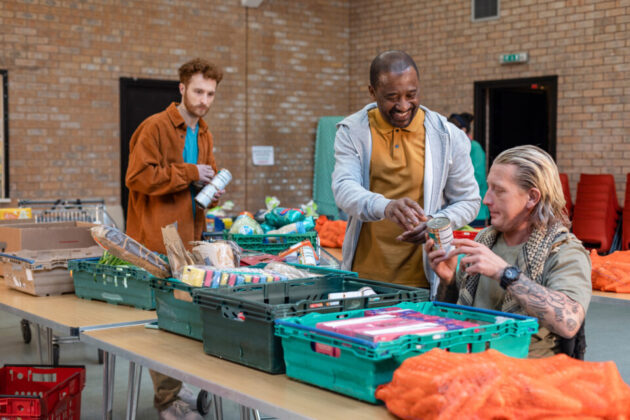 This is because health derives from many more factors than the quality of sickness provision and health services. It comes from good work and housing, friendships and resilience rooted in where people live. Together with other public service agencies, we need to nurture and support those positive conditions. Because the care and treatment we provide will be more effective when those conditions are present.
This is because health derives from many more factors than the quality of sickness provision and health services. It comes from good work and housing, friendships and resilience rooted in where people live. Together with other public service agencies, we need to nurture and support those positive conditions. Because the care and treatment we provide will be more effective when those conditions are present.
Someone discharged from a psychiatric ward needs the activities and support they will find in their neighbourhood.
Closing the inequalities gap requires us to act together through a community powered approach.

Community power and the history of our trust
RDaSH has a strong history of working with our communities and empowering them. For example, we work with our voluntary and charity sectors to deliver our Aspire drug and alcohol services. This includes a strong peer support model. People who come to Aspire are involved in their programme at every stage. We agree a recovery plan with each person to ensure that the programme is person centred and builds on their recovery capital. We work with people to enable them to manage their recovery by understanding their triggers, learning how to control cravings and manage feelings in a constructive manner.
We have also worked with our communities to help people recover from a mental illness and get them back into employment with our vocational support and a Recovery College in North Lincolnshire. Attending Recovery College has been a great way for people to learn how to manage their wellbeing better, learn new ways of coping and get information about their mental health.
In Rotherham we have invested fully in community resources to support individuals beyond traditional service boundaries. Local community groups were micro-commissioned and funded according to the needs of our service users and were provided in communities across Rotherham. This included peer support, befriending, activity and exercise. Many groups that were newly established evolved to be completely service user led. The scheme was and still is completely overseen by Voluntary
Action Rotherham. The service continues to thrive, and is still bespoke to the Rotherham population.
The People Focused Group (PFG) working in the voluntary sector are our patient participation partner and together we engage with many parts of our communities to work with them on designing and delivering services. PFG deliver part of our services for people experiencing a mental health crisis by providing the Safe Space service in Doncaster. The service is delivered by a large network of peer support workers and provides much needed care to our communities.
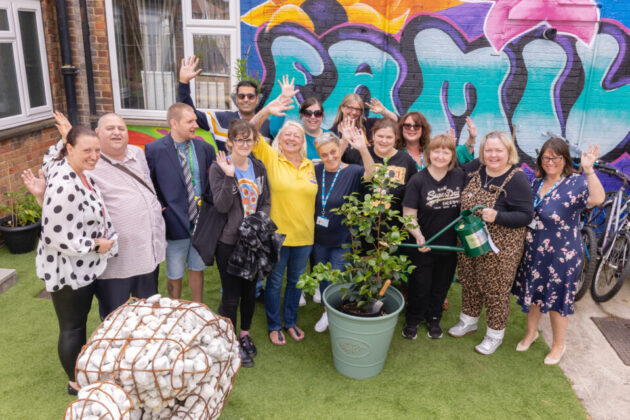 Close working with voluntary sector partners who provide support for those living with dementia has been at the centre of our approach to ensuring the best experience for patients and carers. This includes setting up an advisory panel who set their own terms of references and areas of focus. Our recent established partnership with the Alzheimer’s Society will also enable us to focus more on working with our communities on an equal footing.
Close working with voluntary sector partners who provide support for those living with dementia has been at the centre of our approach to ensuring the best experience for patients and carers. This includes setting up an advisory panel who set their own terms of references and areas of focus. Our recent established partnership with the Alzheimer’s Society will also enable us to focus more on working with our communities on an equal footing.
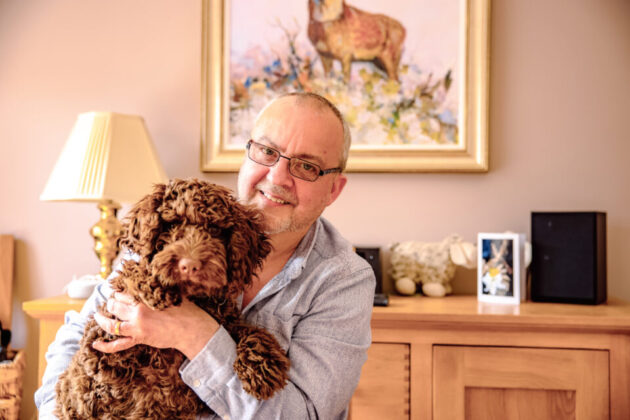 Previous work in delivering the Sure Start agenda was an extremely positive example of community power. Key elements were:
Previous work in delivering the Sure Start agenda was an extremely positive example of community power. Key elements were:
- co-location of children’s services in the heart of communities
- integrated delivery of preventative public health approaches
- grow your own workforce at place, parent volunteers becoming receptionists and support workers and health training opportunities
- direct funding at place for community development, safety equipment, trips and activities, sports clubs and activity sessions
- school readiness month, multi agency workshops, resources and parent involvement, targeted at areas of greatest need
We have an established social enterprise, Flourish, which engages with communities and provides services with community involvement to support vocational training and employment opportunities, creates belonging in the community and adds social value.
So, engaging with communities is something that has been at the heart of RDaSH in the past. However, we want to recognise “community power”. Our focus on ‘communities and health’ is broader, and is about how people, bound by common experiences, characteristics or interests, improve or are helped to improve their health, and where the solutions to health problems are not even mostly about the provision of formal health and care services in the community.
What we will stop doing to deliver the strategy
The strategy does not require us to change our operating geography. Nor does it expand it, although the trust remains open to considering compatible ideas with partners. The strategy assumes we maintain the care services that we are currently contracted to provide.
But we are open to change over the period of the strategy, fully comfortable that some services or parts of pathways will be better provided by others. In 2028 we would expect to deliver a greater proportion of our current portfolio through such collaborations. In 2023 we start work with the Alzheimer’s Society on Dementia Care.
To deliver this strategy will require investing time and care in relationships within local neighbourhoods and places. And we will need to release time for leaders, in all parts of the trust, to focus on the promises in the strategy. That is why we are investing in our data and our systems, to create space in the working week where currently our people often undertake manual activities.
By rationalising our management structures and meetings to create a lean approach we will enable leaders to focus on coaching, mentoring, and prioritising the important over the urgent.
Those processes of reviewing how time is spent, and how time can be released, will be ongoing work. Each year in ensuring financial due diligence we have committed to spending more of every pound we have on patient care. We expect to create dedicated learning time within the Trust to help teams work effectively together on a cross organisational basis.
Currently, we operate in a variety of different ways in different parts of RDASH. Sometimes those differences reflect the needs of a specific local community. For example, we may work differently with one Primary Care Network than we do with another. Or in a given place, a voluntary sector organisation may do some of what we would do elsewhere. But it is clear, in 2023, that in other circumstances some of these differences reflect historic arrangements and decisions. Clinical advice is clear that we should, where we are able to, work in a consistent manner across our teams who do similar work. This will be safer because everyone knows what to expect. And it may offer better quality because of that. This consistency will be an important step in helping us to deliver our strategy.
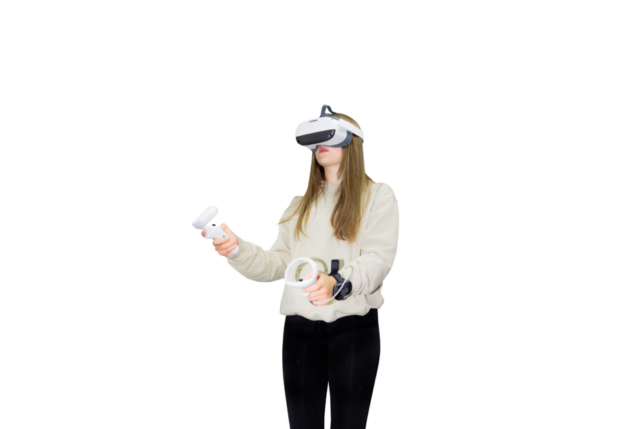
How we will deliver the strategy
This strategy matters and the promises within it matter so our time and effort will be focused on achieving what we say. It will be reflected in local plans, in team objectives, in how we spend money on behalf of the local NHS. Each year we make new investment decisions, and we will give priority to changes that will help us to achieve our strategy objectives.
Being held to account is vital. Our membership, which is open to all, will place a key role in doing this, in the spirit not just the letter of what we have said we will do. And we will structure the work of our executive group and care groups around the strategy. The board of directors will review progress when they meet and provide reports to the council of governors. There are eight plans to help make a reality of this strategy. Some of those plans are enabling documents, designed to make sure that we have the buildings, technology, people, and money to do what we have said that we will do.
Other plans extend our ambitions, building on these core promises, to explain what we will do in four key areas of work:
- quality and safety
- inclusion and equity
- education and learning
- research and innovation
We have looked beyond our organisation and learned from others in developing this strategy. Many of our promises have been achieved somewhere else in the country, much of it elsewhere in Yorkshire or Humber.
There is no doubt that we benefit from being part of a number of “collaboratives”, working alongside other parts of the NHS to improve care. It makes sense to apply their successful models to what we aim to do.
We play our role in the bigger picture too as we are part of a number of national learning programmes, including benchmarking groups, the Equally Well campaign, and New Local, which champions work on community power in public services.
Being successful will mean talking about it. Sharing data about progress. Testing ourselves to see if we have truly delivered. Researching the impact of those changes.
The trust benefits from a strong emphasis on informatics and an extensive research team. We want to balance hard data with soft intelligence in assessing our progress – and we will do that in public, being open to hearing from everyone about how you believe that we are getting on.
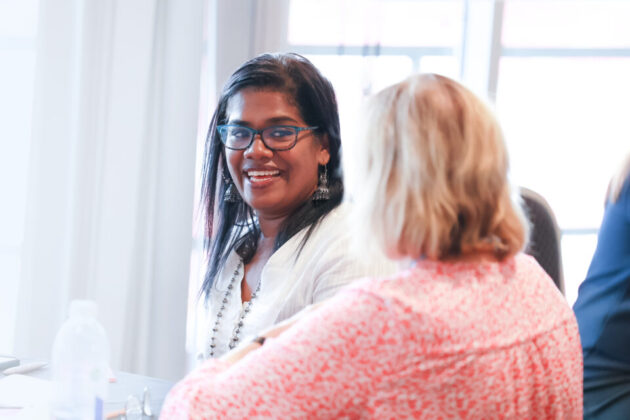
Our objectives for the next five years
- Strategic objective 1, Nurture partnership with patients and citizens to support good health.
- Strategic objective 2, Create equity of access, employment and experience to address differences in outcome.
- Strategic objective 3, Extend our community offer, in each of and between physical, mental health, learning disability, autism and addiction services.
- Strategic objective 4, Deliver high quality and therapeutic bed-based care on our own sites and in other settings.
- Strategic objective 5, Help deliver social value with local communities through outstanding partnerships with neighbouring local organisations.
Enabling plans, estates, digital, finance, people delivery plans, research and innovation, quality and safety, equity and inclusion, learning and education.
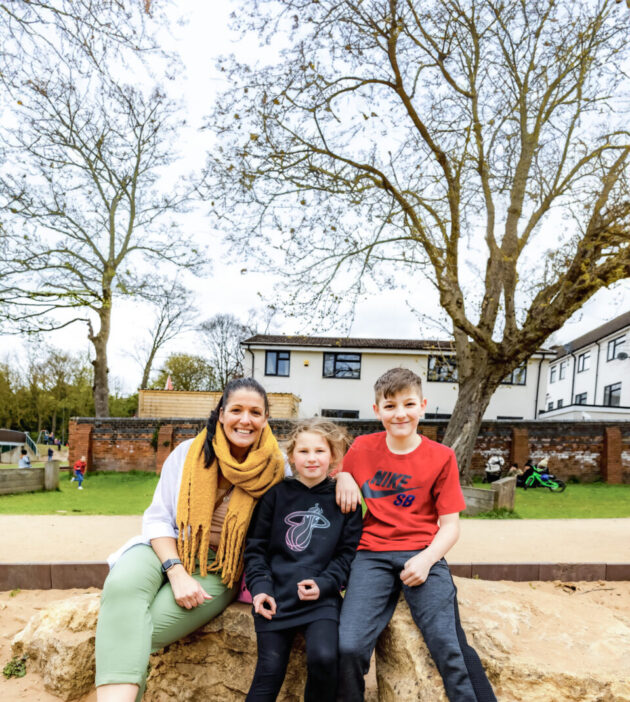
Strategic objective 1, nurture partnerships with patients and citizens to support good health
What does this mean?
Our communities deserve an outstandingly local health service. But for it to be effective we must work with those who use our care services now or will use them in the future.
Listening is important, however, we must go further and do so in an ongoing relationship that shifts the power between carers, those who are patients and professionals within our teams.
Some parts of our trust do this already. Others do not. Our objective is to make active participation in service design and evaluation, service delivery and outcome on a core part, consistently, of how our services operate.
We want to work in the future in a different way to the present. Rebalancing the power between our communities is fundamental to all of our objectives in this strategy.
Why is it important?
Good health does not only come from a service received. In fact, it largely comes from other factors and experiences. How people are treated, heard, valued and supported makes a big difference to their wellbeing and to their outcomes from care.
That is why our promises seek to bring more people from our communities into the trust, as volunteers and peer support workers.
It is why we are focusing hard, on how we support many among our workforce who are unpaid carers, and why we want to make sure that carers’ voices are heard in our services, including young carers.
The NHS has existing systems and processes by which it hears from people and through which it makes decisions. We want to import into our trust the very best practice nationally in how this is done, drawing on our community interest and social enterprise traditions, as well as what works well in traditional health providers.
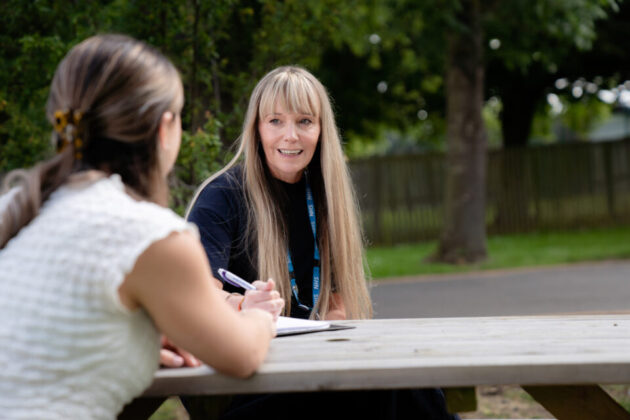
Our promises
- Employ peer support workers at the heart of every service that we offer by 2027.
- Support unpaid carers in our communities and among our staff, developing the resilience of neighbourhoods to improve healthy life expectancy.
- Work with over 350 volunteers by 2025 to go the extra mile in the quality of care that we offer.
- Put patient feedback at the heart of how care is delivered in the trust, encouraging all staff to shape services around individuals’ diverse needs.
- From 2024 systematically, involve our communities at every level of decision-making in our trust throughout the year, extending our membership offer and delivering the annual priorities set by our staff and public governors.
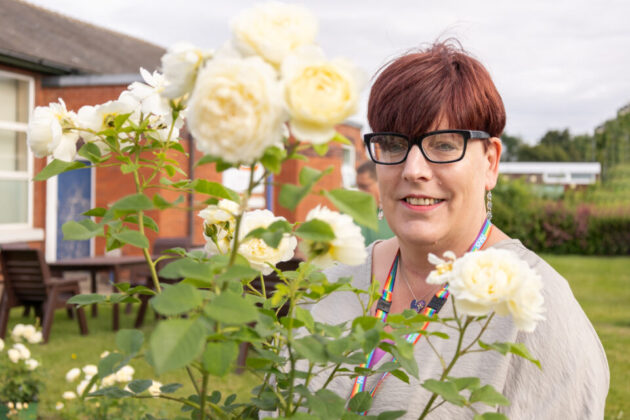
What will success feel like for communities, patients and our people?
- Members of our communities will be a stronger part of our trust and feel that they can influence decisions.
- Patients and carers will see improvements made to our services based on their feedback.
- Unpaid carers in our communities will feel supported by our services.
- People will have more opportunities to volunteer with us or offer their lived experience in peer support roles.

Strategic objective 2, create equity of access, employment and experience to address differences in outcome
What does this mean
Health inequalities have a real impact upon people not just accessing services but also their mental health and wellbeing. Within our communities there are big differences in how long you may live. It is a stark fact that who you are and where you live may mean that you die earlier than other people. There are many factors that affect how long you live and how long you live in good health. These include:
- where you live and if you live in a more deprived area
- if you live in poverty
- if you are disabled, have a serious mental illness, have autism, are neuro divergent or have a learning disability
- if you are from an ethnic minority background
- if you are homeless, a refugee, an asylum seeker or are from the gypsy, Roma and traveller community
We need to understand our population and their health challenges with our partners in areas where we operate, with population health insights helping to guide and inform all our RDaSH activities.
Our clinical services and workforce plans will be shaped by population health intelligence and research evidence. We will work with councils, the voluntary sector, primary care networks and commissioners to reach and actively engage with underserved communities.
This means that by working with others, including our community and partners, we can ensure that everyone has equal access to our services and we can tailor our care and support to address differences in health.
People need to be able to access our services, have a positive experience and achieve good outcomes regardless of which community they live in. In addition, people from different parts of our community need better opportunities to get into work with us or with other organisations via apprenticeships.
Why is it important?
What we know is that there are many factors that can affect inequalities. These inequalities can often mean differences in a person’s access, engagement, outcomes, experience and opportunities. All this can impact on a person’s life chances.
It is important that we acknowledge this and work hard to ensure that our services are designed to support those who are discriminated against, marginalised, who live in poverty, and are likely to live in poor health. Ultimately to improve their health, life chances and length of life and bring those in line with the national average.
Our promises
- “Poverty proof” all our services by 2025 to tackle discrimination, including through digital exclusion.
- Deliver all ten health improvements made in the Core20PLUS5 programme to address healthcare inequalities among children and adults, achieving 95% coverage of health checks for citizens with serious mental illness and those with learning disabilities from 2024.
- Research, create and deliver five impactful changes to inequalities faced by our population in accessing and benefitting from our autism, learning disability and mental health services as part of our wider drive to tackle inequality (“the RDASH 5”).
- Consistently exceed our apprentice levy requirements from 2025, and implement from 2024 specific tailored programmes of employment access focused on refugees, citizens with learning disabilities, care leavers and those from other excluded communities.
- Be recognised by 2027 as an outstanding provider of inclusion health care, implementing National Institute for Health and Care Excellence (NICE) and NHS England (NHSE) guidance in full, in support of local Gypsy, Roma and Travellers (GRT), sex workers, prisoners, people experiencing homelessness and misusing substances, and forced migrants.
- Deliver in full the NHS commitment to veterans and those within our service communities, recognising the specific needs many have, especially for access to suitable mental health and trauma response services.
- Work with community organisations and primary care teams to better recognise and respond to the specific needs of the rural communities and villages that we serve.
What will success feel like for communities, patients and our people?
- More people from diverse and deprived communities accessing services provided by us and other organisations.
- More people from diverse and deprived communities happier with the services provided.
- Better health outcomes for more people from diverse and deprived communities who use our and other organisations’ services.
- Increased access to the specific services provided that improve life expectancy (for example, substance misuse services and reduced smoking rates)
- More people from diverse communities taking up employment and other opportunities.
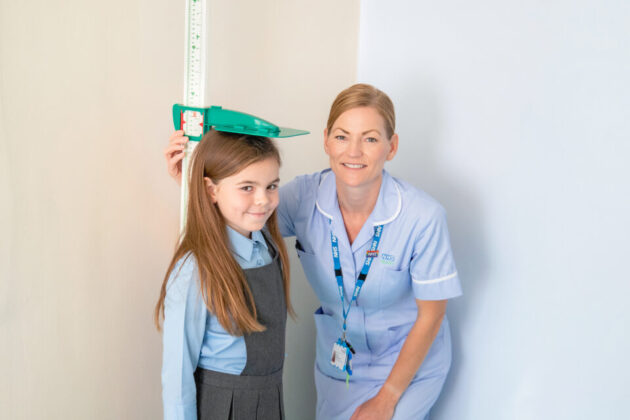
Strategic objective 3, extend our community offer, in each of and between physical, mental health, learning disability, autism and addiction services
What does this mean?
We will deliver our community services with the ethos of ‘Home First’. Wherever possible people will be provided care in their own home, care home or children’s home. This will involve offering culturally appropriate services which are provided by a range of professionals and people including peer support workers and those with lived experience.
People will wait the least amount of time to be seen and receive care. Increasingly we will adopt the use of digital solutions and technology to support care in people’s homes, communicate with patients and carers and provide care itself. A strong example of this is the recent introduction of virtual reality as part of treatment in children and young people’s mental health services.
We will join up the care provided by our physical and mental health teams so that patients are treated as a whole person rather than a set of distinct diagnoses, including for those people with an addiction. As well as providing care, we will focus on preventing poor health and on health promotion.
We will also ensure that our services are autism friendly and that people living with a learning disability are not discriminated against in the provision of care that they receive. Our care will be informed by any trauma that patients have experienced.
To do this we will integrate teams and services to provide joined up care for patients within RDaSH and with our partners so that patients do not feel that they are falling between any gaps in care.
We will also deliver our care in neighbourhoods so that we are responding to what the local needs are in those communities. This will include embedding some of our services alongside schools, early years and nursery providers to tackle poor school readiness.
When people receive care from our community services we will ensure that they receive the best care possible by providing evidence based, therapeutic care with clearly set out patient centred goals and outcomes to be achieved.
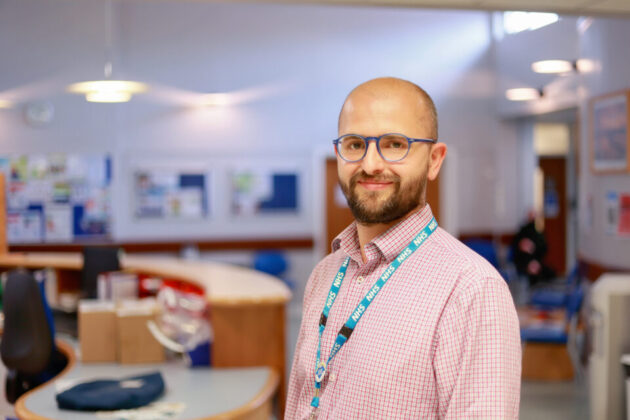
Why is it important?
We know that keeping people in their own homes wherever possible is the best way to deliver care. They can receive care in their homes whilst sleeping in their own beds, being in familiar surroundings and routines and having their family and carers visiting at any time. People have the best chance of recovering or having a good outcome of their care if they wait the least amount of time for their care and treatment to start. Waiting for care to start can add additional stress and a deterioration in health for people.
It is important for people to feel engaged in their care by identifying goals and outcomes that they want to achieve with clinicians. Our clinicians need to be trained in delivering the best evidence based care and be able to work with others to focus on both the physical and mental health needs of patients.
Often patients benefit from talking to people who have experienced the same thing as them. By involving peer support workers, who have lived experience of the recovery process, we unleash the power of communities. Understanding what it is like to live in all of our neighbourhoods will help us to tailor our services to patients and communities ensuring that there is no discrimination in the delivery of our care.
Culturally appropriate services need to be in place so that all communities feel understood and supported. Those living in poverty and feeling the pressure of the cost of living crisis are also supported to access our services, both face to face and digitally.
Local communities health and wellbeing begins with their children and young people. By working closely with school, early years and nursery providers we can help children get ready to start school and support their physical and mental health development.

Our promises
- Substantially increase our HomeFirst ethos which seeks to integrate physical and mental health provision to support residents to live well in their household, children’s home or care home, including older adults.
- Assess people referred urgently inside 48 hours from 2025 (or under four where required) and deliver a four-week maximum wait for all referrals from April 2026, maximising the use of technology and digital innovation to support our transformation.
- Support the delivery of effective integrated neighbourhood teams within each of our places in 2024 as part of our wider effort to deliver parity of esteem between physical and mental health needs.
- Focus on collating, assessing and comparing the outcomes that our services deliver, which matter to local people, and investing in improving those outcomes year on year.
- Embed our child and psychological health teams alongside schools, early years and nursery providers to help tackle poor educational and school readiness and structural inequalities.
What will success feel like for communities, patients and our people?
Our success in delivering this objective will be measured by our patients and their experience.
Patients will:
- be cared for at home wherever possible
- wait to be seen for the least amount of time
- feel that they are cared for in a compassionate and caring way
- feel that their personal goals for recovery and improvement are identified and worked towards during their stay with us
- be able to access culturally appropriate services
- feel that their physical and mental health are equally important to us
- feel satisfied overall with the quality of their care
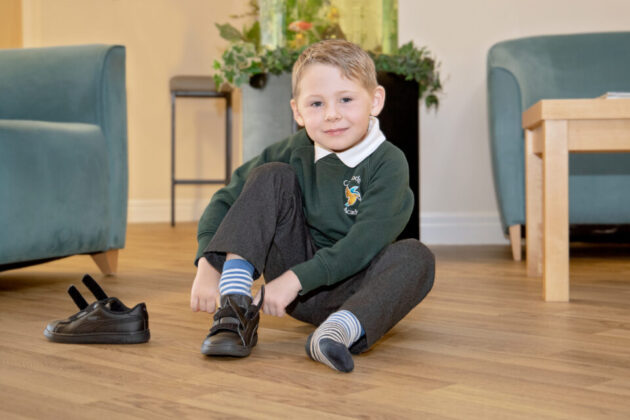
Strategic objective 4, deliver high quality and therapeutic bed-based care on our own sites and in other settings
What does this mean?
Wherever possible, care will be provided close to or in people’s homes. However, when people do need to be admitted to our bed based care they will receive the best care possible ensuring that we provide evidence based, therapeutic care with clearly set out patient centred goals and outcomes to be achieved.
Our care will be informed by traumas that our patients have experienced.
Whilst in our bed-based care our patients will be supported by a wide range of professionals who will ensure that care is offered at the same level seven days a week.
To enhance their recovery patients and carers will also be supported by peer support workers and people with a lived experience.
By working in partnership with others, such as the voluntary sector, we will develop more alternatives to hospital bed based care to help people stay in their own homes or closer to home.
We will make sure that patients are cared for in bed based services in the area where they live and prevent them staying in hospital longer than necessary.
Why is it important?
We know that keeping people in their own homes, where they sleep in their own beds, have familiar surroundings and routines and regular visits from family and carers, is the best way to deliver care.
However, there will sometimes be a need for people to be admitted to one of our bed based services. When this happens it is vital that people feel supported, receive good quality care, are treated with compassion and dignity and go home when they are ready.
People also need to be provided care in bed based setting in their local area so that their family and carers can visit them and they are in familiar surroundings.
It is important that we provide the same level of care from our clinicians to patients seven days a week so that their recovery is not delayed on a weekend. Equally important is for patients to receive care from a wide range of professionals and people and that care is focused on reaching goals that are important to them.
Our promises
- From 2023 invest, support and research the best models of therapeutic multi-disciplinary inpatient care, increasingly involving those with lived experience and expert carers in supporting our patients’ recovery.
- End out of area placements in 2024, as part of supporting people to be cared for as close to home as is safely possible.
- Deliver virtual care models in our mental and physical health services by 2025, providing a high quality alternative to prolonged admission.
- Actively support local primary care networks and voluntary sector representatives to improve the coordination of care provided to local residents, developing services on a hyper local basis.
- Develop consistent seven day a week service models across our intermediate care, mental health wards and hospice models from 2025 in order to improve quality of care.
- Invest in residential care projects and programmes that support long-term care outside our wards, specifically supporting expansion of community forensic, step-down and step-up services.
What will success feel like for communities, patients and our people?
Our success in delivering this objective will be measured by our patients and their experience.
Patients will:
- be cared for at home wherever possible
- stay in our bed based services that is appropriate for the least amount of time
- be cared for a bed based service local to where they live
- feel that they are cared for in a compassionate and caring way
- feel that their personal goals for recovery and improvement are identified and worked towards during their stay with us
- feel that they have received good quality care, seven days a week
- feel satisfied overall with their stay with us

Strategic objective 5, help to deliver social value with local communities through outstanding partnerships with neighbouring local organisations
What does this mean?
This objective is about what kind of organisation the trust is, and wishes to continue to be. How we work is at least as important as what we do.
By putting partnership at the heart of our strategy, we are recognising our interdependence with many others.
Social value is a term that tries to recognise this role, beyond simply finding efficient ways to provide high quality care.
RDASH is an anchor institution. That means that we have a long term ‘stake’ in the future social fabric in which we work. It matters to us that there are strong local voluntary sector organisations and that the public and private sectors work well together.
We need to be a good partner for our schools and young people, as we look to the future of the NHS and who may choose to join us for their career.
Why is it important?
RDASH plays an important role in the life of our communities and is a valued partner for many neighbouring organisations. It matters that we work to help them deliver their ambitions, while seeking their assistance with the promises that we have made. Climate change is one field where only by working collaboratively together can we succeed. For the trust our partnerships in education and research are central to our work, and to attracting the very best people to come and practice locally.
The bedrock of the local NHS is general practice. By far the majority of patient care is delivered through primary care teams. The trust is determined to work effectively with them, recognising that their future shape and role will continue to evolve.
We know that our people are attracted to RDaSH by our strong values base and cultural commitment to be a progressive and inclusive organisation. By tackling discrimination, by ensuring a fair wage among our suppliers, and by adapting what we do and how we work to meet the immediate challenges of a changing climate, we are intentionally reinforcing those values, doing what we say, and saying what we will do.

Our promises
- Expand and improve our educational offer at undergraduate and postgraduate level, as part of supporting existing and new roles within services and teams while delivering the NHS long term workforce plan.
- Achieve Real Living Wage accreditation by 2025, whilst transitioning significantly more of our spend to local suppliers in our communities.
- Become an anti-racist organisation by 2025, as part of a wider commitment to fighting discrimination and positively promoting inclusion.
- Deliver the NHS green plan and match commitments made by our local authorities to achieve net zero, whilst adapting our service models to climate change.
- Extend the scale and reach of our research work every year: creating partnerships with industry and universities that bring investment and employment to our local community.
What will success feel like for communities, patients and our people?
- Patients and carers will feel that services are more joined up.
- More of our people will be able to develop and learn with more opportunities to access education.
- All of our people will benefit from being paid at least the living wage.
- People will see us challenging racism when we see it and working hard to reduce discrimination.
- Local communities and environments will benefit from a reduction in CO2 produced by the trust and our services will adapt to the challenges of climate change.
- More research will be undertaken giving more opportunities for our people and communities to take part.
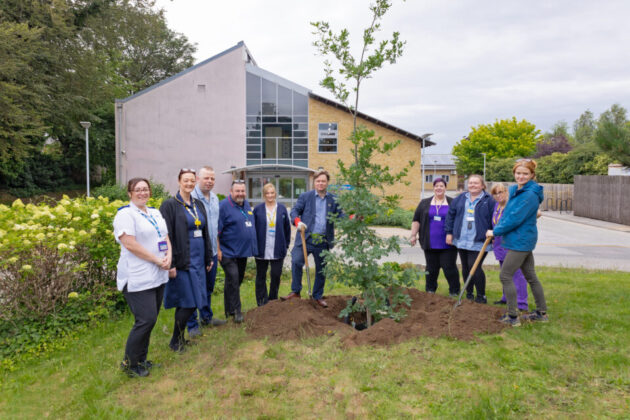
Measuring success
By December 2023, all eight supporting plans will be in place within the trust. These will specify measures of success for each promise, defining our current state and the trajectory of improvement required. It is these trajectories that the Board and the committees of the Board will focus on in their work to ensure sufficient attention is being given to the strategy.
This oversight will help us to stay focused and to prioritise what we have committed to achieving. But the strategy is fundamentally about how the trust sits within communities. The role that we play and how others place reliance on our expertise, our help, and our assets.
It follows from that underlying aim that it should be others, not the trust, who judge whether the strategy has succeeded.
We will work with our governing body, our membership, and our partners, especially our patient-led partners, to make an annual assessment of progress. This will be published as part of our annual report
In simple terms we will explain each year over five years:
- which promises are on track to be delivered or have been delivered
- which promises are not on track and the action we are taking because of that
- whether the trust is succeeding with our work to become recognised locally as a critical contributor to the power of our communities
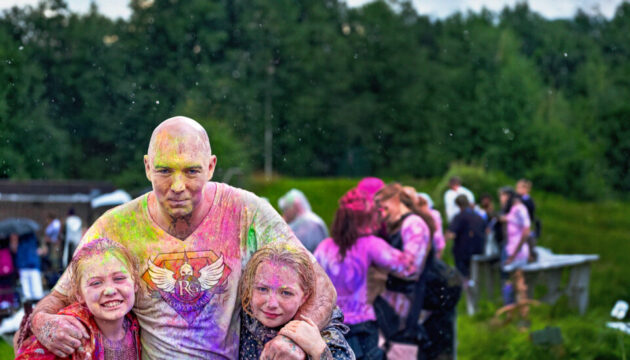
“The fierce urgency of now” our timeline for action
Over five years (11)
- Support unpaid carers in our communities and among our staff, developing the resilience of neighbourhoods to improve healthy life expectancy.
- Put patient feedback at the heart of how care is delivered in the trust, encouraging all staff to shape services around individuals’ diverse needs.
- Work with community organisations and general practitioners to better recognise and respond to the specific needs of the rural communities and villages that we serve.
- Substantially increase our Home First ethos which seeks to integrate physical and mental health provision to support residents, including older adults and children, to live well in their household, care home or children’s home.
- Embed our child and psychological health teams alongside schools, early years and nursery providers to help tackle poor school readiness and structural inequalities.
- Invest in residential care projects and programmes that support long-term care outside our wards, specifically supporting expansion of community forensic, step-down and step-up services.
- Actively support local primary care networks and voluntary sector representatives to improve the coordination of care provided to local residents, developing services on a hyper local basis.
- Deliver the NHS green plan and match commitments made by our local authorities to achieve net zero, whilst adapting our service models to climate change.
- Extend the scale and reach of our research work every year: creating partnerships with industry and universities that bring investment and employment to our local community
- Deliver in full the NHS’ commitment to veterans, their children and those within our service communities, recognising the specific needs many have, especially access to suitable physical health, mental health and trauma responsive services.
- Expand and improve our educational offer at undergraduate and postgraduate level, as part of supporting existing and new roles within services and teams while delivering the NHS long term workforce plan.
2023 to 2024 (6)
- From 2024 systematically, involve our communities at every level of decision-making in our trust throughout the year, extending our membership offer, and delivering the annual priorities set by our staff and public governors.
- From 2023 invest, support and research the best models of therapeutic multi-disciplinary inpatient care, increasingly involving those with lived experience and expert carers in supporting our patients’ recovery.
- End out of area placements in 2024, as part of supporting people to be cared for as close to home as is safely possible.
- Support the delivery of effective integrated neighbourhood teams within each of our places in 2024 as part of our wider effort to deliver parity of esteem between physical and mental health needs.
- Deliver all 10 health improvements made in the Core20PLUS5 programme to address healthcare inequalities among children and adults: achieving 95% coverage of health checks for citizens with serious mental illness and those with learning disabilities from 2024.
- Focus on collating, assessing and comparing the outcomes that our services deliver, which matter to local people, and investing in improving those outcomes year on year. In 24/25 this work will start with work on older adults’ care within our services.
2025 to 2026 (8)
- Work with over 350 volunteers by 2025 to go the extra mile in the quality of care that we offer.
- “Poverty proof” all our services by 2025 to tackle discrimination, including through digital exclusion.
- Consistently exceed our apprentice levy requirements from 2025, and implement from 2024 specific tailored programmes of employment access focused on refugees, citizens with learning disabilities, care leavers and those from other excluded communities.
- Deliver virtual care models in our mental and physical health services by 2025, providing a high quality alternative to prolonged admission.
- Develop consistent seven day a week service models across our physical health, mental health wards, detox unit and hospice from 2025 in order to improve quality of care.
- Achieve Living Wage accreditation by 2025, whilst transitioning significantly more of our spend to local suppliers in our communities.
- Become an anti-racist organisation by 2025, as part of a wider commitment to fighting discrimination and positively promoting inclusion.
- Assess people referred urgently inside 48 hours from 2025 (or under four where required) and deliver a four-week maximum wait for all referrals from April 2026, maximising the use of technology and digital innovation to support our transformation.
2027 to 2028 (3)
- Employ peer support workers at the heart of every service that we offer by 2027.
- Be recognised by 2027 as an outstanding provider of inclusion health care, implementing NICE and NHSE guidance in full, in support of local GRT, sex workers, prisoners, people experiencing homelessness, and misusing substances, and forced migrants.
- Research, create and deliver five impactful changes to inequalities faced by our population in accessing and benefitting from our autism, learning disability and mental health services as part of our wider drive to tackle inequality (“the RDaSH 5”).
Contact the trust
Page last reviewed: November 06, 2024
Next review due: November 06, 2025
Problem with this page?
Please tell us about any problems you have found with this web page.